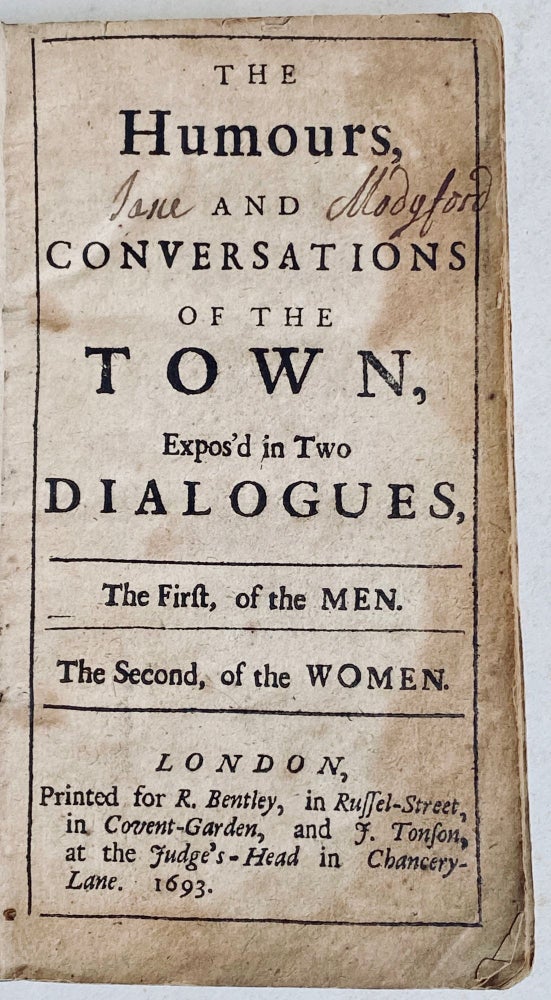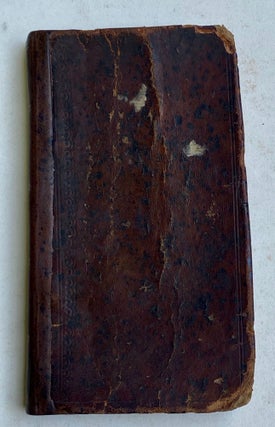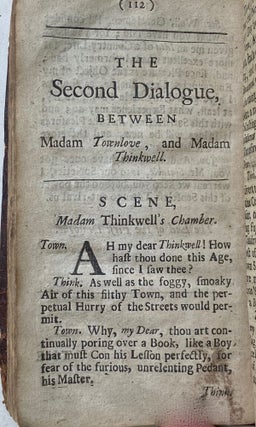The Humours and conversations of the town expos’d in two dialogues : the first, of the men, the second, of the women.
London : printed for R. Bentley, in Russel-Street, in Covent-Garden, and J. Tonson, at the Judge’s-Head in Chancery-Lane, 1693. First and only edition. Bound in speckled calf, IMG_3940recently rebacked, with the signature of Jane Modgford on the title and page 1. Wright, James 1643-1713, antiquary and miscellaneous writer, “A versatile writer with a lucid style and a genuine touch of humour, especially as an essayist…” [DNB]. The attribution first appears, in Brice Harris’s facsimile of this edition printed in 1961. The work itself is written as a dialogue between Jovial and Pensive who have visited London and wish to return to the country. Jovial’s cousin, Sociable, enjoys the London social whirl. They argue about the various pleasures of the city versus the country. Dryden is discussed at one point: “the company of the author of Absalom and Achitophel is more valuable, tho’ not so talkative, than that of the modern men of banter; for what he says, is like what he writes; much to the purpose, and full of mighty sense…” This is followed by another, shorter, dialogue between Madam Townlove and Madam Thinkwell.
The original form ‘to a T’ is an old phrase and the earliest citation that I know of is in IMG_3942James Wright’s satire The Humours and Conversations of the Town, 1693:
“All the under Villages and Towns-men come to him for Redress; which he does to a T.”
The letter ‘T’ itself, as the initial of a word. If this is the derivation then the word in question is very likely to be ‘tittle’. A tittle is a small stroke or point in writing or printing and is now best remembered via the term jot or tittle. The best reason for believing that this is the source of the ‘T’ is that the phrase ‘to a tittle’ existed in English well before ‘to a T’, with the same meaning;
for example, in Francis Beaumont’s Jacobean comedy drama The Woman Hater, 1607. we find: “Ile quote him to a tittle.”
In this case, although there is no smoking gun, the ‘to a tittle’ derivation would probably stand up in court as ‘beyond reasonable doubt’. Very nice condition. Item #736
Wing; H3720; Cf. Macdonald, Hugh. John Dryden; a bibliography. Oxford, 1939, p. 275-276. :Brett-Smith 305.
ESTC Citation No. R31136
http://estc.bl.uk/F/2Q5SSI4SVQHNH367AHEBKYI48ERDGNF97DX5TJXJ4GXQH4BJ72-07782?func=full-set-set&set_number=005564&set_entry=000001&format=999
https://wp.me/p3kzOR-4dl.
Price: $2,200.00



